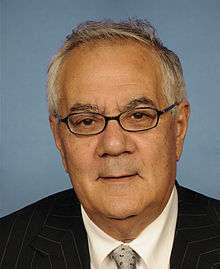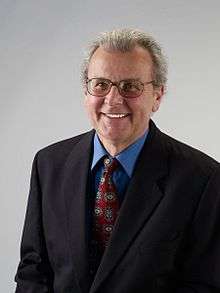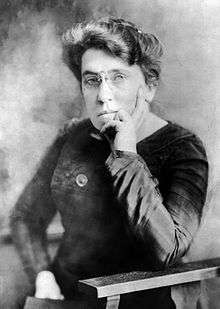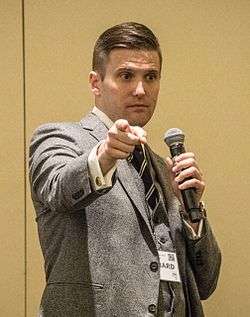Atheist Americans| Total population |
|---|
|
27,787,098
(lack of belief in god/gods)
(2014)[1][2]
9,571,112
(self described atheists)
(2014)[1][2] |
| Religions |
|---|
|
Irreligion:
(including antitheism, agnostic atheism, apatheism, casualism, counter-apologeticism, debaptism evangelical atheism, freethought/freethinker, ignosticism, implicit and explicit atheism, Marxist–Leninist atheism, negative and positive atheism, nonbeliever, nontheism, post-theism, rationalism, new/scientific atheism, secular humanism, skepticism, etc.)
Secular religions:
Buddhism
(including secular Buddhism, etc.)
Christian atheism
(including Cultural Christian (Cultural Catholic, Cultural Mormon, Nontheist Quakers, etc.), Lapsed Catholic, Recovering Catholic, Rice Christian, etc.)
Ethical movement
Hinduism
(including Adevism, Charvaka, Hindu atheist, etc.)
Jainism
Jewish atheism
(including Cultural Judaism, etc.)
Modern Paganism
Muslim atheism
(including Cultural Muslim, etc.)
New religious movements
(including Creativity, Raëlism, etc.)
Parody religions
(including Church of Satan, Church of the Flying Spaghetti Monster/Pastafarianism, Invisible Pink Unicorn, Jediism, LaVeyan Satanism, etc.)
Satanism
Taoism
Unitarian Universalism |
| Part of a series on |
| Atheism |
|---|
|
|
|
|
|
|
|
|
|
|
-
 Category Category
-
 Portal Portal
-
 WikiProject WikiProject
|
|
According to the Pew Research Center in a 2014 survey, self-identified "atheists" make up 3.1% of the US population, even though 9% of Americans agreed with the statement "Do not have believe in God" while 2% agreed with the statement "Do not know if they believe in God".[2] According to the 2014 General Sociological Survey, the number of atheists and agnostics in the U.S. has remained relatively flat in the past 23 years, although it is difficult to accurately measure due to the stigma of disbelief. In 1991, only 2% identified as atheist, and 4% identified as agnostic. In 2014, only 3.1% identified as atheists, and 5% identified as agnostics.[3]
In 2009, Pew stated that only 5% of the US population did not have a belief in a god and out of that small group only 24% self-identified as "atheist", while 15% self-identified as "agnostic" and 35% self-identified as "nothing in particular".[4] According to the 2008 ARIS, only 2% the US population was atheist, while 10% were agnostics.[5] A survey using binary wording found that around 26% of Americans don't believe in god, but they were not comfortable with directly admitting it. However, methodological problems have been identified with this particular study since people do not have binary relationships to questions on God and instead have more complex responses to such questions.[6]
Accurate demographics of atheism are difficult to obtain since conceptions of atheism and self-identification are context dependent by culture.[7]
Demographics
Age
Lack of belief in god/gods among age groups in the United States (2014)
| Age group |
% of lack of belief in god/gods |
% of self described atheists |
Source |
| 18-29 year old Americans |
16 |
16 |
6 |
6 |
[2] |
| 30-49 year old Americans |
9 |
9 |
3 |
3 |
[2] |
| Americans |
9 |
9 |
3.1 |
3.1 |
[2] |
| 50-64 year old Americans |
6 |
6 |
2 |
2 |
[2] |
| 65+ year old Americans |
6 |
6 |
2 |
2 |
[2] |
|
Education
Gender
Lack of belief in god/gods among genders in the United States (2014)
| Gender |
% of lack of belief in god/gods |
% of self described atheists |
Source |
| Male American |
12 |
12 |
4 |
4 |
[2] |
| Americans |
9 |
9 |
3.1 |
3.1 |
[2] |
| Female American |
6 |
6 |
2 |
2 |
[2] |
|
Generation
Household income
Lack of belief in god/gods among household income in the United States (2014)
| Generation |
% of lack of belief in god/gods |
% of self described atheists |
Source |
| $100,000 or more, Americans |
14 |
14 |
5 |
5 |
[2] |
| $50,000-$99,999, Americans |
11 |
11 |
3 |
3 |
[2] |
| $30,000-$49,999, Americans |
9 |
9 |
3 |
3 |
[2] |
| Americans |
9 |
9 |
3.1 |
3.1 |
[2] |
| Less than $30,000, Americans |
7 |
7 |
2 |
2 |
[2] |
|
Immigrant status
Lack of belief in god/gods among immigrant status in the United States (2014)
| Generation |
% of lack of belief in god/gods |
% of self described atheists |
Source |
| Second generation Americans |
14 |
14 |
4 |
4 |
[2] |
| Americans |
9 |
9 |
3.1 |
3.1 |
[2] |
| Third generation or higher Americans |
9 |
9 |
3 |
3 |
[2] |
| Immigrants |
8 |
8 |
3 |
3 |
[2] |
|
Marital status
Lack of belief in god/gods among marital status in the United States (2014)
| Generation |
% of lack of belief in god/gods |
% of self described atheists |
Source |
| Never married Americans |
15 |
15 |
5 |
5 |
[2] |
| Living with a partner Americans |
14 |
14 |
5 |
5 |
[2] |
| Americans |
9 |
9 |
3.1 |
3.1 |
[2] |
| Married Americans |
7 |
7 |
2 |
2 |
[2] |
| Divorced/separated Americans |
6 |
6 |
2 |
2 |
[2] |
| Widowed Americans |
3 |
3 |
1 |
1 |
[2] |
|
Metro area
Political affiliation
Lack of belief in god/gods among political affiliation in the United States (2014)
| Racial group |
% of lack of belief in god/gods |
% of self described atheists |
Source |
| Democrat/Lean Democrat Americans |
13 |
13 |
5 |
5 |
[2] |
| Americans |
9 |
9 |
3.1 |
3.1 |
[2] |
| No lean, Americans |
9 |
9 |
3 |
3 |
[2] |
| Republican/Lean Republican Americans |
5 |
5 |
1 |
1 |
[2] |
|
Parental status
Lack of belief in god/gods among parental status in the United States (2014)
| Racial group |
% of lack of belief in god/gods |
% of self described atheists |
Source |
| Non-parents of children under 18 year old Americans |
10 |
10 |
3 |
3 |
[2] |
| Americans |
9 |
9 |
3.1 |
3.1 |
[2] |
| Parents of children under 18 year old Americans |
7 |
7 |
2 |
2 |
[2] |
|
Political ideology
Lack of belief in god/gods among political ideology in the United States (2014)
| Racial group |
% of lack of belief in god/gods |
% of self described atheists |
Source |
| Liberal Americans |
19 |
19 |
7 |
7 |
[2] |
| Americans |
9 |
9 |
3.1 |
3.1 |
[2] |
| Moderate Americans |
9 |
9 |
3 |
3 |
[2] |
| Don't know, Americans |
8 |
8 |
|
[2] |
| Conservative Americans |
3 |
3 |
1 |
1 |
[2] |
|
Race
Region
Religion
Lack of belief in god/gods among religious/belief groups in the United States (2014)
| Religious group |
% of lack of belief in god/gods |
Source |
| Atheist Americans |
92 |
92 |
[2] |
| Agnostic Americans |
41 |
41 |
[2] |
| Nothing in particular (religion not important), Americans |
33 |
33 |
[2] |
| Unaffiliated Americans |
33 |
33 |
[2] |
| Buddhist Americans |
27 |
27 |
[2] |
| New Age movement, Americans |
21 |
21 |
[2] |
| Nothing in particular, Americans |
20 |
20 |
[2] |
| Unitarians and other liberal faiths in "other faiths", Americans |
19 |
19 |
[2] |
| Jewish Americans |
17 |
17 |
[2] |
| Hindu Americans |
10 |
10 |
[2] |
| Americans |
9 |
9 |
[2] |
| Episcopalian (Mainline Protestant) Americans |
4 |
4 |
[2] |
| Anglican Church, Americans |
3 |
3 |
[2] |
| Episcopal Church, Americans |
3 |
3 |
[2] |
| Nothing in particular (religion important), Americans |
3 |
3 |
[2] |
| Eastern Orthodox Americans |
3 |
3 |
[2] |
| Lutheran (Mainline Protestant) Americans |
2 |
2 |
[2] |
| Mainline Protestant Americans |
2 |
2 |
[2] |
| Nondenominational (Mainline Protestant) Americans |
2 |
2 |
[2] |
| Roman Catholic Americans |
2 |
2 |
[2] |
| Baptist (Mainline Protestant) Americans |
1 |
1 |
[2] |
| Christian Americans |
1 |
1 |
[2] |
| Evangelical Lutheran Church in America, Americans |
1 |
1 |
[2] |
| Muslim Americans |
1 |
1 |
[2] |
| Pentecostal (Evangelical Protestant) Americans |
1 |
1 |
[2] |
| Presbyterian (Evangelical Protestant) Americans |
1 |
1 |
[2] |
| Presbyterian (Mainline Protestant) Americans |
1 |
1 |
[2] |
| Presbyterian Church in America, Americans |
1 |
1 |
[2] |
| Presbyterian Church, Americans |
1 |
1 |
[2] |
| United Church of Christ, Americans |
1 |
1 |
[2] |
| United Methodist Church, Americans |
1 |
1 |
[2] |
| Adventist (Evangelical Protestant) Americans |
<1 |
|
[2] |
| African Methodist Episcopal Church, Americans |
<1 |
|
[2] |
| American Baptist Churches, Americans |
<1 |
|
[2] |
| Assemblies of God, Americans |
<1 |
|
[2] |
| Baptist (Evangelical Protestant) Americans |
<1 |
|
[2] |
| Baptist (Historically Black Protestant) Americans |
<1 |
|
[2] |
| Church of God, Americans |
<1 |
|
[2] |
| Church of God in Christ, Americans |
<1 |
|
[2] |
| Church of Jesus Christ of Latter-day Saints, Americans |
<1 |
|
[2] |
| Church of the Nazarene, Americans |
<1 |
|
[2] |
| Churches of Christ, Americans |
<1 |
|
[2] |
| Evangelical Protestant Americans |
<1 |
|
[2] |
| Historically Black Protestant, Americans |
<1 |
|
[2] |
| Holiness (Evangelical Protestant), Americans |
<1 |
|
[2] |
| Independent Baptist (Evangelical Protestant) Americans |
<1 |
|
[2] |
| Interdenominational (Evangelical Protestant) Americans |
<1 |
|
[2] |
| Interdenominational (Mainline Protestant) Americans |
<1 |
|
[2] |
| Jehovah's Witness, Americans |
<1 |
|
[2] |
| Lutheran (Evangelical Protestant) Americans |
<1 |
|
[2] |
| Lutheran Church-Missouri Synod, Americans |
<1 |
|
[2] |
| Methodist (Historically Black Protestant) Americans |
<1 |
|
[2] |
| Mormon Americans |
<1 |
|
[2] |
| National Baptist Convention, Americans |
<1 |
|
[2] |
| Nondenominational (Evangelical Protestant) Americans |
<1 |
|
[2] |
| Nondenominational (Historically Black Protestant) Americans |
<1 |
|
[2] |
| Nondenominational charismatic Americans |
<1 |
|
[2] |
| Nondenominational evangelical Americans |
<1 |
|
[2] |
| Nondenominational fundamentalist Americans |
<1 |
|
[2] |
| Pentecostal (Historically Black Protestant) Americans |
<1 |
|
[2] |
| Restorationist (Evangelical Protestant) Americans |
<1 |
|
[2] |
| Seventh-day Adventist Americans |
<1 |
|
[2] |
| Southern Baptist Convention, Americans |
<1 |
|
[2] |
|
Sexual orientation
Self described atheists among sexual orientations in the United States (2014)
| Sexual orientation |
% of self described atheists |
Source |
| LGBT Americans |
8 |
8 |
[2] |
| Americans |
3.1 |
3.1 |
[2] |
| Straight Americans |
3 |
3 |
[2] |
|
State/federal district

Disbelief in god/gods in the United States by state/territory in 2014
Disbelief in god/gods—20-30%
Disbelief in god/gods—10-20%
Disbelief in god/gods—<10%
Lack of belief in god/gods/self described atheists among states/local district in the United States (2014)
| State/federal district |
% of lack of belief in god/gods |
% of self described atheists |
Source |
|
# of population |
|
# of population |
|
 Vermont Vermont |
131,406 |
21 |
21 |
43,802 |
7 |
7 |
[2][1] |
 Massachusetts Massachusetts |
1,178,573 |
18 |
18 |
327,381 |
5 |
5 |
[2][1] |
 Maine Maine |
212,538 |
16 |
16 |
26,567 |
2 |
2 |
[2][1] |
 New Hampshire New Hampshire |
210,635 |
16 |
16 |
78,988 |
6 |
6 |
[2][1] |
 District of Columbia District of Columbia |
84,241 |
14 |
14 |
24,069 |
4 |
4 |
[2][1] |
 Oregon Oregon |
498,040 |
13 |
13 |
191,554 |
5 |
5 |
[2][1] |
 Washington Washington |
874,190 |
13 |
13 |
336,227 |
5 |
5 |
[2][1] |
 Alaska Alaska |
85,228 |
12 |
12 |
35,512 |
5 |
5 |
[2][1] |
 California California |
4,470,475 |
12 |
12 |
1,490,158 |
4 |
4 |
[2][1] |
 Nevada Nevada |
324,066 |
12 |
12 |
135,028 |
5 |
5 |
[2][1] |
 Wisconsin Wisconsin |
682,438 |
12 |
12 |
170,610 |
3 |
3 |
[2][1] |
 New York New York |
2,131,591 |
11 |
11 |
968,905 |
5 |
5 |
[2][1] |
 Idaho Idaho |
172,434 |
11 |
11 |
31,352 |
2 |
2 |
[2][1] |
 New Mexico New Mexico |
226,510 |
11 |
11 |
61,775 |
3 |
3 |
[2][1] |
 Rhode Island Rhode Island |
115,782 |
11 |
11 |
42,103 |
4 |
4 |
[2][1] |
 Arizona Arizona |
639,202 |
10 |
10 |
191,761 |
3 |
3 |
[2][1] |
 Colorado Colorado |
502,920 |
10 |
10 |
201,168 |
4 |
4 |
[2][1] |
 Florida Florida |
1,880,131 |
10 |
10 |
564,039 |
3 |
3 |
[2][1] |
 Indiana Indiana |
648,380 |
10 |
10 |
194,514 |
3 |
3 |
[2][1] |
 Maryland Maryland |
577,355 |
10 |
10 |
173,207 |
3 |
3 |
[2][1] |
 Pennsylvania Pennsylvania |
1,270,238 |
10 |
10 |
381,071 |
3 |
3 |
[2][1] |
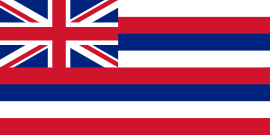 Hawaii Hawaii |
122,427 |
9 |
9 |
27,206 |
2 |
2 |
[2][1] |
 Illinois Illinois |
1,154,757 |
9 |
9 |
384,919 |
3 |
3 |
[2][1] |
 Iowa Iowa |
274,172 |
9 |
9 |
121,854 |
4 |
4 |
[2][1] |
 Michigan Michigan |
889,528 |
9 |
9 |
296,509 |
3 |
3 |
[2][1] |
 Minnesota Minnesota |
477,353 |
9 |
9 |
159,118 |
3 |
3 |
[2][1] |
 Nebraska Nebraska |
164,371 |
9 |
9 |
18,263 |
1 |
1 |
[2][1] |
 United States United States |
27,787,098 |
9 |
9 |
9,571,112 |
3.1 |
3.1 |
[2][1] |
 Montana Montana |
79,153 |
8 |
8 |
39,577 |
4 |
4 |
[2][1] |
 New Jersey New Jersey |
703,352 |
8 |
8 |
175,838 |
2 |
2 |
[2][1] |
 North Dakota North Dakota |
53,807 |
8 |
8 |
13,452 |
2 |
2 |
[2][1] |
 Utah Utah |
221,111 |
8 |
8 |
82,917 |
3 |
3 |
[2][1] |
 Virginia Virginia |
640,082 |
8 |
8 |
160,020 |
2 |
2 |
[2][1] |
 Kentucky Kentucky |
303,756 |
7 |
7 |
173,574 |
4 |
4 |
[2][1] |
 Delaware Delaware |
62,855 |
7 |
7 |
17,959 |
2 |
2 |
[2][1] |
 Iowa Iowa |
213,245 |
7 |
7 |
121,854 |
4 |
4 |
[2][1] |
 Kansas Kansas |
199,718 |
7 |
7 |
57,062 |
2 |
2 |
[2][1] |
 North Carolina North Carolina |
667,484 |
7 |
7 |
190,710 |
2 |
2 |
[2][1] |
 Ohio Ohio |
807,555 |
7 |
7 |
230,730 |
2 |
2 |
[2][1] |
 South Dakota South Dakota |
56,993 |
7 |
7 |
24,425 |
3 |
3 |
[2][1] |
.svg.png) Georgia Georgia |
581,259 |
6 |
6 |
193,753 |
2 |
2 |
[2][1] |
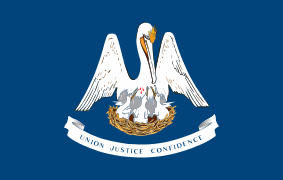 Louisiana Louisiana |
272,002 |
6 |
6 |
90,667 |
2 |
2 |
[2][1] |
 Missouri Missouri |
359,336 |
6 |
6 |
119,779 |
2 |
2 |
[2][1] |
 Texas Texas |
1,508,734 |
6 |
6 |
502,911 |
2 |
2 |
[2][1] |
 Wyoming Wyoming |
33,818 |
6 |
6 |
16,909 |
3 |
3 |
[2][1] |
 South Carolina South Carolina |
231,268 |
5 |
5 |
46,254 |
1 |
1 |
[2][1] |
 West Virginia West Virginia |
92,650 |
5 |
5 |
18,530 |
1 |
1 |
[2][1] |
 Arkansas Arkansas |
116,637 |
4 |
4 |
58,318 |
2 |
2 |
[2][1] |
 Mississippi Mississippi |
118,692 |
4 |
4 |
29,673 |
1 |
1 |
[2][1] |
 Tennessee Tennessee |
190,383 |
3 |
3 |
63,461 |
1 |
1 |
[2][1] |
 Alabama Alabama |
95,595 |
2 |
2 |
47,797 |
1 |
1 |
[2][1] |
|
Public officials
Federal officials
United States Representatives
- Arizona
- California
- Massachusetts
United States Senators
- Oklahoma
State officials
State governors
- Minnesota
State legislators
- Nebraska
State representatives
- Arizona
- Maine
- Massachusetts
State senators
- Arizona
- California
- Maine
- Nevada
- Utah
Local officials
Mayors
- Minnesota
- Utah
Chairperson of the City Council
- Maine
City councilors
- North Carolina
Political views
A June–September 2014 Pew Research Center survey found that 69% of atheist Americans identity as Democratic or lean Democratic, 17% have no lean, 15% identity as Republican, 56% liberal, 29% moderate, 10% conservative, and 5% don't know. Among Americans who don't believe in god/gods, 65% identity as Democratic or lean Democratic, 17% have no lean, 18% identity as Republican, 50% liberal, 31% moderate, 13% conservative, and 6% don't know. That makes atheist and nonbelievers in god/gods Americans as belief groups to be the most politically liberal belief group in America and the least politically aligned belief group with Republicans and conservatism in the United States.[2]
A October 2013 Public Religion Research Institute American Values Survey found 58% of American libertarians report they believe in a personal god, 25% believe god is an impersonal force in the universe, and 16% report that they do not believe in a god. It also found 73% of Americans who identify with the Tea Party report they believe in a personal god, 19% believe god is an impersonal force in the universe, and 6% report that they do not believe in a god. It also found 90% of white evangelical Protestants report they believe in a personal god, 8% believe god is an impersonal force in the universe, and less than 1% report that they do not believe in a god.[17]
List of atheist Americans
Organizations
See also
References
- 1 2 3 4 5 6 7 8 9 10 11 12 13 14 15 16 17 18 19 20 21 22 23 24 25 26 27 28 29 30 31 32 33 34 35 36 37 38 39 40 41 42 43 44 45 46 47 48 49 50 51 52 53 2014 US Census
- 1 2 3 4 5 6 7 8 9 10 11 12 13 14 15 16 17 18 19 20 21 22 23 24 25 26 27 28 29 30 31 32 33 34 35 36 37 38 39 40 41 42 43 44 45 46 47 48 49 50 51 52 53 54 55 56 57 58 59 60 61 62 63 64 65 66 67 68 69 70 71 72 73 74 75 76 77 78 79 80 81 82 83 84 85 86 87 88 89 90 91 92 93 94 95 96 97 98 99 100 101 102 103 104 105 106 107 108 109 110 111 112 113 114 115 116 117 118 119 120 121 122 123 124 125 126 127 128 129 130 131 132 133 134 135 136 137 138 139 140 141 142 143 144 145 146 147 148 149 150 151 152 153 154 155 156 157 158 159 160 161 162 163 164 165 166 167 168 169 170 171 172 173 174 175 176 177 178 179 180 181 182 183 184 185 186 187 188 189 190 191 192 193 194 195 196 197 198 199 200 201 Religious Landscape Study
- ↑ Hout, Michael; Smith, Tom (March 2015). "Fewer Americans Affiliate with Organized Religions, Belief and Practice Unchanged: Key Findings from the 2014 General Social Survey" (PDF). General Social Survey. NORC.
The percentage answering 'no religion' was 21 percent in 2014, 20 percent in 2012, just 14 percent as recently as 2000, and only 8 percent in 1990." & "In 2014, 3 percent of Americans did not believe in God and 5 percent expressed an agnostic view; the comparable percentages were 2 percent and 4 percent in 1991. More people believed in a 'higher power' in 2014 (13%) than in 1991 (7%).
- ↑ "Not All Nonbelievers Call Themselves Atheists | Pew Research Center's Religion & Public Life Project". Pewforum.org. 2009-04-02. Retrieved 2014-02-27.
- ↑ Kosmin, Barry; Keysar, Ariela (2009). "American Nones: The Profile of the No Religion Population" (PDF). Trinity Colloge.
- ↑ Resnick, Brian (13 April 2017). "How many American atheists are there really?". Vox. Vox Media. Vox Media. Retrieved 22 April 2017.
- ↑ Zuckerman, Phil (2007), "Atheism: Contemporary Rates and Patterns", Cambridge Companion to Atheism, pp. 47–66, doi:10.1017/CCOL0521842700.004
- 1 2 3 Kimberly Winston (2012-11-08). "Kyrsten Sinema, Arizona Democrat, To Replace Pete Stark As Sole Atheist In Congress". The Huffington Post. Retrieved 2012-11-08.
- 1 2 3 Stark called himself "a Unitarian who does not believe in a supreme being" and has been identified as an atheist. Rep. Stark applauded for atheist outlook: Believed to be first congressman to declare nontheism, Associated Press, March 13, 2007 (Accessed June 15, 2007)
- 1 2 3 Wong, Curtis (2013-08-09). "Barney Frank's 'Pot-Smoking Atheist' Revelation Discussed On 'The Rubin Report'". The Huffington Post. Retrieved 2013-08-09.
- 1 2 "Real Time with Bill Maher Episode #149 April 10, 2009". www.veoh.com.
- 1 2 3 The Hon. Atheist Governor: Culbert L. Olson Archived 2008-09-23 at the Wayback Machine.
- 1 2 "Jesse Ventura". NNDB.com. Retrieved 25 April 2012.
Formerly a Lutheran, Ventura generally considers himself an atheist.
- ↑ Hammel, Paul. "Ernie Chambers targets 'so help me God' in oaths". Omaha World-Herald. Retrieved 4 September 2013.
- ↑ ""You can be elected as an openly gay politician in this country, but you can't be elected as an openly atheistic one", said Lori Lipman Brown, who was hired last fall to be the Washington, D.C., lobbyist for an organization devoted to atheist causes, the Secular Coalition for America. She's believed to be the first paid lobbyist for the unbelievers in the nation's capital, the front lines of the culture wars. Now, all Brown is seeking is a constituency willing to go public. "Think of where the LGBT movement was 25 years ago", said Brown, who has worked on gay and lesbian rights issues as a legislator and attorney. "That's where atheists are today." […] Brown, who is married and was raised a "humanistic Jew", talks about how she "came out" as an atheist several years ago, and how most atheists aren't "out yet" at work. She says atheist kids—like many gay children—are made to feel outcasts at school, and explains that she wants to erase the negative connotation to the word "atheist" just as homosexuals have reclaimed slurs like "queer" and "dyke."" Joe Garofoli, 'Atheists hoping to assert rights in religious era', San Francisco Chronicle, February 20, 2006 (accessed June 16, 2008).
- ↑ voterocky.org
- ↑ In Search of Libertarians in America
Further reading
- Schmidt, Leigh Eric. Village Atheists: How America's Unbelievers Made Their Way in a Godly Nation (Princeton UP, 2016). xxii, 337 pp.
Irreligion in North America |
|---|
| Sovereign states |
- Antigua and Barbuda
- Bahamas
- Barbados
- Belize
- Canada
- Costa Rica
- Cuba
- Dominica
- Dominican Republic
- El Salvador
- Grenada
- Guatemala
- Haiti
- Honduras
- Jamaica
- Mexico
- Nicaragua
- Panama
- Saint Kitts and Nevis
- Saint Lucia
- Saint Vincent and the Grenadines
- Trinidad and Tobago
- United States
|
|---|
Dependencies and
other territories |
- Anguilla
- Aruba
- Bermuda
- Bonaire
- British Virgin Islands
- Cayman Islands
- Curaçao
- Greenland
- Guadeloupe
- Martinique
- Montserrat
- Puerto Rico
- Saint Barthélemy
- Saint Martin
- Saint Pierre and Miquelon
- Saba
- Sint Eustatius
- Sint Maarten
- Turks and Caicos Islands
- United States Virgin Islands
|
|---|
|
|---|
|
| Demographics | |
|---|
| Economy | |
|---|
| Environment | |
|---|
| Geography | |
|---|
| Government | |
|---|
| Health | |
|---|
| History | |
|---|
| Law | |
|---|
| Miscellaneous | |
|---|
|
|
|---|
| Sovereign states | |
|---|
Dependencies and
other territories | |
|---|





